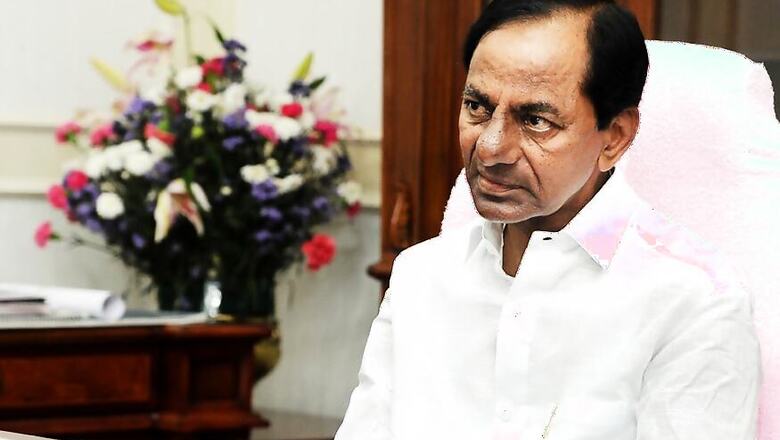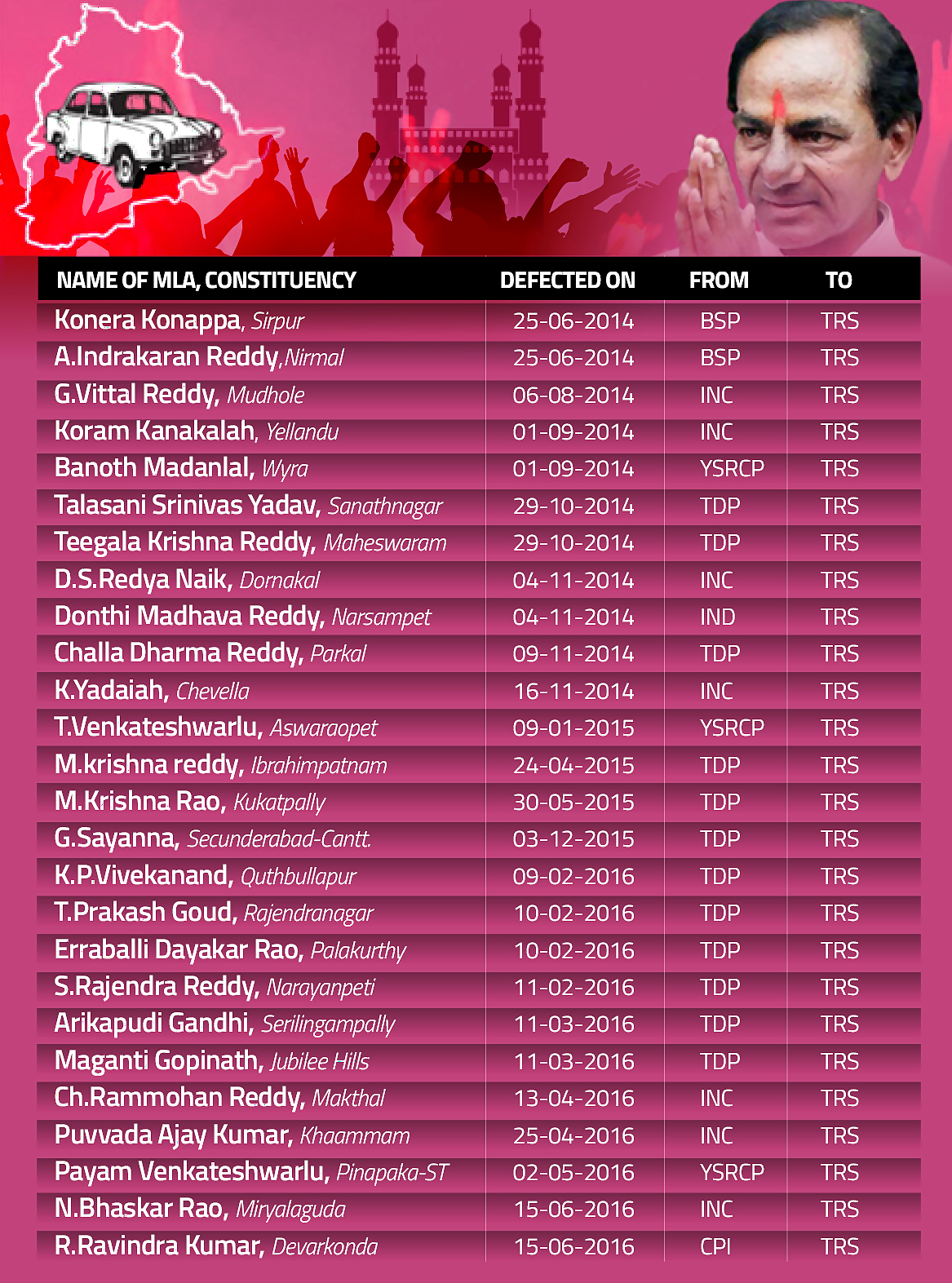
views
Political parties excel at finding ways to circumvent laws and the Telangana Rashtriya Samiti seems to have led the way in defeating the spirit of anti-defection laws in the country and thereby setting a dangerous precedent.
The way out, as the TRS has shown in the outgoing assembly, is that the speaker of the house will simply sit on the demand for disqualification. In effect, no decision means no disqualification!
Twenty-six MLAs defected from opposition parties to the TRS over the last four years and the demand for their disqualification is pending before the speaker of the house S Madhusudana Chary. The issue now becomes infructuous as the Telangana cabinet recommends dissolution of the State assembly.
Having emerged as the champion of the movement for a separate State, the TRS rode to power with 63 of the 119 assembly constituencies which became part of Telangana in 2014. But, as it sounds the bugle for early polls in the State, it has 90 members in the outgoing house.
Out of the 27 additional MLAs it got after the 2014 elections, 26 are through defections, and the TRS operation to shore up its numbers was even dubbed ‘Operation Akarshan’ in political circles. While the Congress party, the principal opposition party in the State, lost seven of its 22 legislators to the TRS, the TDP lost 12 of the 15 MLAs and the YSR Congress lost the three it had in Telangana. Twelve of the defectors were even given cabinet berths by Chief Minster K Chandrashekar Rao.
All 26 defectors remained members of the house till it's dissolved and that’s because of a lacuna in the law that the TRS exploited. One that has been exploited before by other political parties in other states, but perhaps, not at the scale in Telengana.

What the Law Says?
While the law as it stands today, introduced in the tenth schedule in 1985 and later amended in 2004 to prevent horse trading and defections, explicitly says those who split or resign from a party after an election will lose membership of the house, the decision on disqualification will have to be taken by the Speaker of the house.
Unfortunately, there is no set time limit for a speaker to deliver his decision on disqualification. It is important to note here that the law does not explicitly state that if more than a particular fraction of MLAs have moved the parent party, they automatically get recognition.
In fact, the issue of which faction would get the party symbol, like in the case of AIADMK in Tamil Nadu, will have to be decided by the courts.
In other words, arguments that if one third of a party’s legislatures decide to defect then they will not attract disqualification, has no legal basis. In fact, an amendment in 2004 removed the one third member clause that existed before.
In effect, the problem is that there is no time limit for the speaker to decide on disqualification and that’s what the TRS has used to its advantage. Till a speaker decides, the courts can also do little in the matter as they can only hear pleas challenging the speaker’s decision.
And the Telugu Desam Party, which was at the receiving end in Telangana, has learnt the art of defeating anti-defection laws from the TRS. Several YSR Congress MLAs in Andhra Pradesh, where elections are due in April-May 2019, have defected to the TDP and are yet to be disqualified.
The issue is not new, but the scale at which the lacuna in the law was exploited in Telangana will have to serve as a wake-up call. It’s perhaps time to do away with discretionary powers of the speaker in this matter and ensure there is a clear time limit for decisions to be taken on disqualification of legislators.
And, while we are at it, it’s perhaps time to do away with discretionary powers of a governor when it comes to deciding on which party has to be invited first to form a government and how long they can be given to prove a majority in the event of a hung verdict.
(Author is a senior journalist. Views expressed are personal.)




















Comments
0 comment